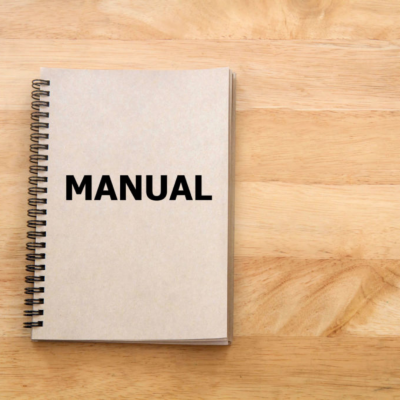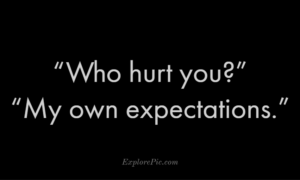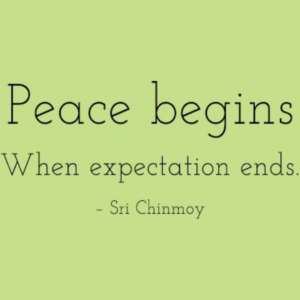
The Soul Has Its Own Manual

In yogic philosophy, there is an idea that is known as the Jivatman. Jivatam is our spiritual thumbprint. From the moment we are conceived, Jivatman determines our uniqueness, talents, challenges, and desires.
My son Leo has a Jivatman that makes him unique. I believe it is my job to protect him and love him unconditionally. I also wish to nurture his little soul so he can become who he is meant to be.
Giving A Soul Our Manual
 Loving another human without placing conditions upon them can be quite a challenge. We tend to have expectations of others or ideas of how someone else should behave, almost like a written manual.
Loving another human without placing conditions upon them can be quite a challenge. We tend to have expectations of others or ideas of how someone else should behave, almost like a written manual.
A manual is a practical book that tells you how to do something. Without even knowing it, we’ve created operating manuals for other people to follow as a way to make ourselves feel better. So much of our suffering in life stems from wanting others to behave in accordance with the “manuals” we create. Our emotional lives then become dependent on other people to make us happy rather than take responsibility for our own feelings.
Looking To Our Manuals To Feel Better
 I have never been successful at getting others to behave like I want them to. I find myself waiting for others to change according to my “manual” for them. The good news is, we don’t have to change other people to feel better. All we have to do is learn how to properly manage our relationship with them.
I have never been successful at getting others to behave like I want them to. I find myself waiting for others to change according to my “manual” for them. The good news is, we don’t have to change other people to feel better. All we have to do is learn how to properly manage our relationship with them.
One way we can manage relationships with others is by realizing we have created manuals for them. Usually, we aren’t even aware we have created one. Not only are we unaware, but the person we have created it for also doesn’t know the manual exists.
We can discover the manual we have created for people in our lives by focusing on someone we wish would change in some way. It can be your spouse, a family member, co-worker, or a friend. Think in detail about all the ways we wish this person would change. Ask yourself why you want them to behave this way? Then determine how you would feel if they followed your manual exactly as you’ve written it.
The truth is, the only reason we want others to behave a certain way is so that we can feel better.
For example, a manual for Leo might go as follows:
Leo will sleep through the night, every night. He will eat just the right amount so he can put on just the right amount of weight. Leo will not scream at me when I change his diapers or set him down. He will hit every one of his developmental milestones right on time. He will love tummy time and will never be crabby. Leo will follow the daily routine I’ve created for him without complaints (eat, play, sleep, repeat). Oh, AND he will giggle and smile often.
My expectations for Leo are unrealistic. First, no baby in the history of babies has ever been able to meet all of the above criteria. Second, I know Leo will not follow my manual because he isn’t. He is being exactly who he is meant to be. Who am I to dictate these things for him?
I have found myself expecting things from Leo. I thought if he followed my manual then I would feel “better.” Maybe I want Leo to meet his developmental milestones so I can feel like a capable mother who is doing everything right. Maybe I want him to sleep through the night so I can feel ready for my day. The truth is, I can feel like a capable parent and prepared for my day despite what Leo decides to do.
Choosing To Feel Better
 Sometimes we think people should act a certain way, be different than who they are, or just know better than they do. It is much easier to blame someone for how we feel than take responsibility for our own emotions. How do we know people should behave as they do? Because this is how they choose to behave. Who are we to say that they should be any different than who they are?
Sometimes we think people should act a certain way, be different than who they are, or just know better than they do. It is much easier to blame someone for how we feel than take responsibility for our own emotions. How do we know people should behave as they do? Because this is how they choose to behave. Who are we to say that they should be any different than who they are?
Rather than be surprised by other people’s actions, I’ve found it more useful to accept people’s behavior for what it is. Then, if they do something out of the norm, I can be pleasantly surprised. I work with several different clients who have various family dynamics. Some families are perpetually late. I accept their tardiness. When they are not, I am pleasantly surprised.
How many times have you placed unrealistic expectations on people in your life? Then, if they don’t fulfill the expectations, do you allow it to affect your emotional well-being?
We can make requests of other people. Unfortunately, this does not mean they have to obey our requests. I have asked my clients to be on time. I used to expect this of them and when they were late I would become angry because I thought that they didn’t respect my time. In reality, whether they were on time or not had nothing to do with me.
We can feel secure, connected, loved, motivated, valued, or simply BETTER just by deciding that’s how we wish to feel. Leo can crawl when he wants to and I can choose to feel like a capable mother regardless of when he decides to do so. Someone else does not determine how I feel. I am the one who creates this for myself.
Let's Talk About Unconditional Love
 I think some people in our lives are harder to love than others. Usually, in these relationships, I have a hard time remembering that love is an option. It’s a choice I get to make and a feeling only I get to feel. Someone can be as angry, bitter, or dismissive as they want, and I can still choose feelings of love for them. This doesn’t necessarily benefit the other person because it’s a feeling only I get to feel.
I think some people in our lives are harder to love than others. Usually, in these relationships, I have a hard time remembering that love is an option. It’s a choice I get to make and a feeling only I get to feel. Someone can be as angry, bitter, or dismissive as they want, and I can still choose feelings of love for them. This doesn’t necessarily benefit the other person because it’s a feeling only I get to feel.
Let’s say I am driving behind someone going 10 miles under the speed limit in the fast lane. I can choose to think this person is a terrible driver, who needs to be informed of the rules of the fast lane. This thought will make me feel anger toward the driver of the vehicle. Notice, it’s my thought that makes me angry NOT the actions of the driver. The only person feeling this anger is me. The driver of the vehicle remains unaffected by my anger toward them.
Our challenging relationships can be an opportunity to expand our capacity to love. When we choose something besides love, we are the ONLY ones who feel it. If we choose to hate, dislike, fear, or dread someone, that’s on us. We are the ones experiencing that emotion. If we want to feel hate then we can choose to hate. But there are so many emotions available to us, so why would we choose one that doesn’t feel very good?
Let’s say I decided to think “this person is a very safe driver.” I likely would feel indifferent or calm. I may even feel admiration for the driver. This emotion fuels a more pleasant experience so I then get to sit back and enjoy vibrations of love rather than anger without having to change how the person drives- which obviously I have zero control over.
The End Of The Manual
 We are all under the influence of certain limitations, which can make the world a confusing place. Some of these limitations include our conditioning, perception, beliefs, and societal influences. I wouldn’t want to further limit or confuse the blueprint of Leo’s Jivatman by placing my conditions upon him.
We are all under the influence of certain limitations, which can make the world a confusing place. Some of these limitations include our conditioning, perception, beliefs, and societal influences. I wouldn’t want to further limit or confuse the blueprint of Leo’s Jivatman by placing my conditions upon him.
At a certain point in Leo’s life, he gets to decide who he wants to be. The only control I have is deciding whether or not I wish to continue writing my “manual” for him. I know the more expectations I place on Leo, the more complex my manual will be for him, which will result in more misery for me. The fewer expectations I have for Leo and how he should behave, the happier I am going to be.
Like Leo, we are all here doing the best we can. Who am I to decide what someone’s best should look like? Even my most challenging relationships can be an opportunity to expand my capacity to love since it is always an option. It is a gift we all can give ourselves since no one else experiences it but the one choosing to feel it.
Contemplation Points: Discover Your Manuals
- Think about someone you want to change and write in detail what you would like them to do.
- For each detail, ask yourself why you want them to behave this way.
- How would you feel if they followed your manual for them?
- How would you think about them differently if they behaved this way? Can you think about them this way even if they don’t change?
- What is it like for you when someone wants you to behave in a certain way so they can feel good?
- List a specific example of them doing something you don’t like.
What would it take and be like to love them in this moment? - What would it be like to love them without condition?







